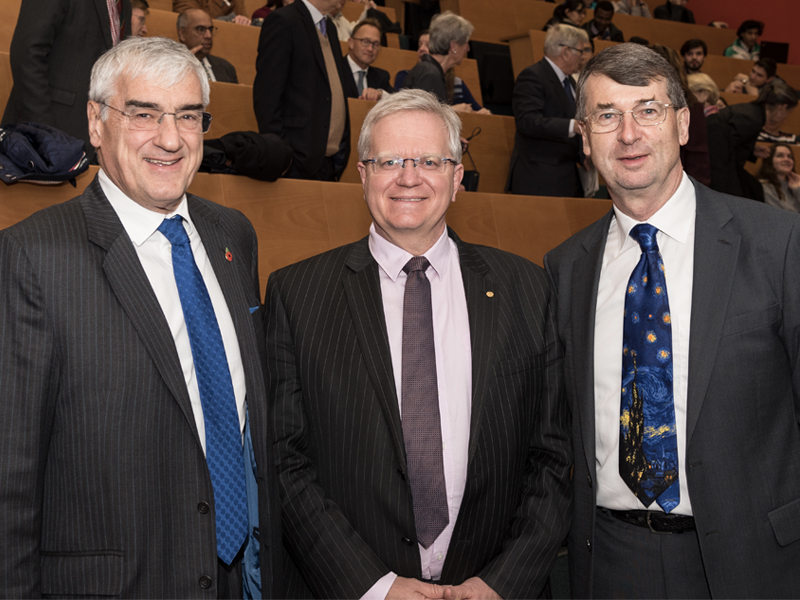Yesterday, the Department of Physics hosted the 15th Hintze Lecture in Astrophysics. Professor Brian Schmidt, Vice-Chancellor of the Australian National University and 2011 Nobel Prize winner in Physics was the invited lecturer, and delivered a fascinating talk on 'The State of the Universe'.

The occasion marked the announcement of further tremendous investment in Astrophysics at Oxford from the Hintze Family Charitable Foundation. The University is delighted to recognise this support through the naming of the University of Oxford Hintze Centre for Astrophysical Surveys. Senior academics, Hintze Fellows and Hintze Scholars are focused on three strands of activity: Galaxy Evolution, the Dark Universe, and the Transient Universe.
Through this support, the University is now an established partner in the Large Synoptic Survey Telescope (LSST) and SDSS-IV collaborations.
The Transients team was involved in a number of scientific breakthroughs in the past year. After last year's detection of gravitational waves by the Advanced LIGO detector (a discovery that led to the award of the 2017 Nobel Prize for Physics), the race was on to detect electromagnetic waves from such a source. That search came to fruition over the summer of 2017 and the Hintze Centre scientists played a key role.
Professor Roger Davies, Director of the Hintze Centre commented: 'We are deeply grateful to Sir Michael and Lady Hintze, and the Trustees of the Hintze Family Charitable Foundation for their longstanding friendship and support of Astrophysics at Oxford. Our successful partnership has enabled students and young researchers to pursue some of the most exciting questions in modern astrophysics such as the recent discovery of the first electromagnetic counterpart to a source of gravitational waves, as well as some of the most distant galaxies yet observed.'